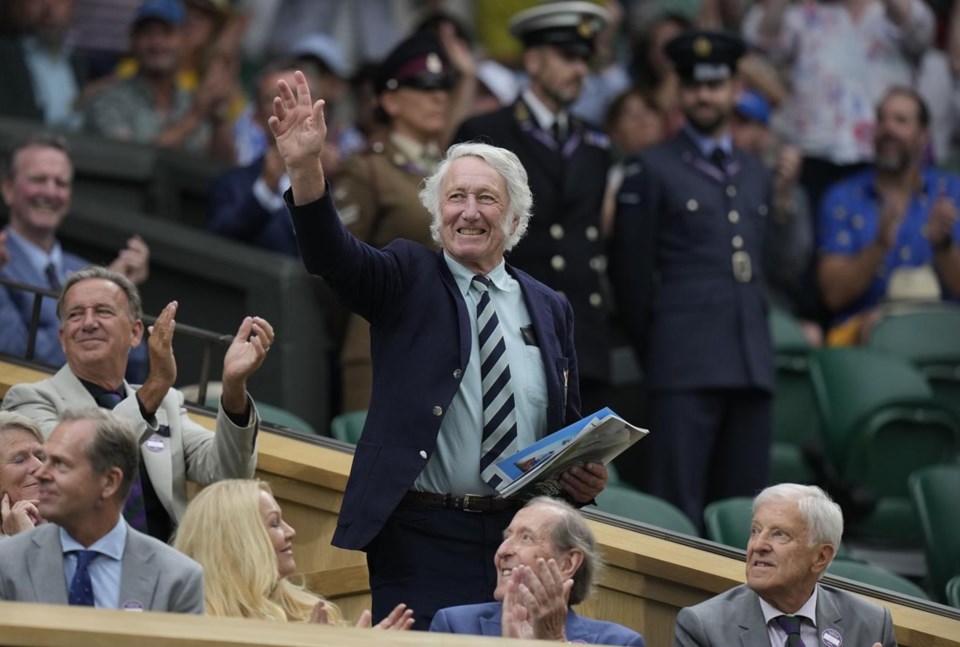BRIDGEND, Wales (AP) — JPR Williams, the Wales rugby great of the 1970s known for his fearlessness and swashbuckling attacking style, has died. He was 74.
His death was announced Monday by Bridgend Ravens, a club that Williams served as a player and club president.
“Bridgend Ravens are devastated to announce the passing of JPR Williams,” the club said in a statement on its website.
Williams' family then said in a statement to the BBC: “JPR died peacefully today at the University Hospital of Wales (in Cardiff) surrounded by his loving wife and four children, after a short illness, bravely battling bacterial meningitis. The family request privacy at this difficult time.”
Williams won 55 Wales caps and started all eight tests on victorious British and Irish Lions tours to New Zealand in 1971 and South Africa three years later.
“One of the greatest players the game has ever seen. JPR Williams leaves behind an incredible legacy," governing body World Rugby posted on X, formerly Twitter.
Williams was revered among fellow Wales stars like Gareth Edwards, Phil Bennett and Gerald Davies, and regarded as one of rugby’s finest players.
“An icon of the world game, John Peter Rhys Williams served Bridgend Ravens as a player and most recently as club president," Bridgend said. "(Career highlights) included three (Five Nations) Grand Slams in 1971, 1976 and 1978 for Wales."
A star performer during Welsh rugby’s golden era in the 1970s, Williams was a strong defender in addition to having attacking panache as a pacey, broken-field runner.
Williams was a key part of the Lions team that recorded a 2-1 series triumph over New Zealand in 1971 — it is a feat that no Lions team has repeated — dropping a goal in the fourth test that ended 14-14 and ensured a series success.
He was equally as prominent on the 1974 South Africa tour, which the Lions took with three wins and a draw.
Williams also starred for the Barbarians in their unforgettable 23-11 victory over New Zealand in 1973, touching down in a game chiefly remembered for Edwards’ spectacular touchdown that completed a breathtaking length-of-the-field move.
The “JPR” moniker took effect in 1973 to distinguish him from Wales teammate John JJ Williams, and it was a rugby career which saw him taking his place among a small group of Welshmen to win three Grand Slams.
Socks always around his ankles and long sideburns resplendent, he was as popular among rugby supporters as any of his illustrious peers, while away from rugby circles he became an orthopedic surgeon and was a Fellow of the Royal College of Surgeons. He qualified as a physician in 1973 after studying at St. Mary’s Hospital Medical School, London, by which time he was firmly established as a trailblazing full back.
“I used to say that I spent half my life breaking bones on the rugby field, then the other half putting them back together in the operating theatre,” he wrote in his 2007 book, “JPR: Given The Breaks — My Life In Rugby.”
Williams, who worked as a consultant at the Princess of Wales Hospital, Bridgend, leaves his wife Scilla and four children.
___
AP rugby: https://apnews.com/hub/rugby
The Associated Press



